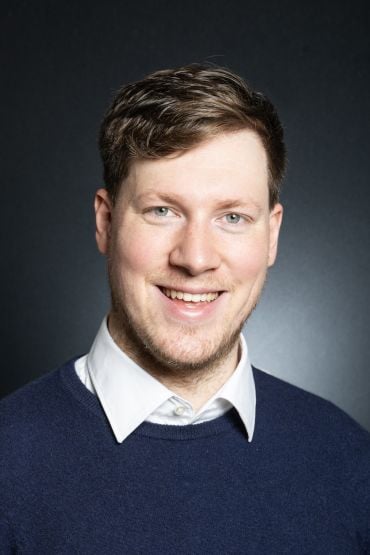Professor Philip Torr and Dr Christian Schroeder de Witt, both from Oxford University's Department of Engineering Science, have been awarded a prestigious AI2050 Research Fellowship by Schmidt Sciences .
The Schmidt Sciences AI2050 programme funds researchers to pursue projects to help AI create immense benefits for humanity by 2050. Announced today, 28 academics will join the fourth cohort who will collectively receive more than $18 million in AI2050 fellowships.
'AI is underhyped, especially when it comes to its potential to benefit humanity,' said Eric Schmidt, co-founder of Schmidt Sciences with his wife Wendy. 'The AI2050 fellowship was established to turn that potential into reality-by supporting the people and ideas shaping a healthier, more resilient, and more secure world.'
Professor Philip Torr , Department of Engineering Science: Awarded a 2025 AI2050 Senior Fellowship.
 Professor Philip Torr.
Professor Philip Torr.Professor Philip Torr's research interests lie in the fields of AI for science, AI safety, agentic systems and computer vision, as well as being a serial entrepreneur. He has pioneered advances in object recognition, and segmentation, 3D reconstruction, tracking and scene understanding. He is the founder of several companies including Oxsight, which develops technology to enhance the vision of those with visual impairments.
Using the AI2050 Fellowship, he aims to create an AI system that can work alongside human historians to interpret and explain the past. While AI has transformed scientific fields, the humanities have been largely left behind. This initiative seeks to change that by developing an AI capable of reasoning about historical evidence - identifying causes, testing competing explanations, and uncovering patterns in how societies evolve. Rather than replacing human judgment, the AI will serve as a research partner: a 'digital co-historian' that helps scholars handle vast archives and fill gaps in incomplete records. This will enable scholars to explore major historical questions, such as why some societies endure while others collapse, or how cultural ideas spread across regions.
He said: 'This Fellowship gives me the chance to work on my dream project. The aim is to launch a new discipline of "computational historiography," where AI and humans collaborate to better understand the forces that have shaped - and may continue to shape - human history.'
Dr Christian Schroeder de Witt, Department of Engineering Science: Awarded a 2025 AI2050 Early Career Fellowship.
 Dr Christian Schroeder de Witt.
Dr Christian Schroeder de Witt.Dr Schroeder de Witt's work shapes the future of AI safety and security, cybersecurity, and global technology policy. As head of the Oxford Witt Lab , he leads a global anticipatory research agenda on securing ecosystems of AI agents, humans, and institutions against undetectable and systemic threats, bridging rigorous mathematical theory with real-world impact. A notable achievement was solving a 25-year open problem of perfectly secure steganography , where sensitive information is concealed so effectively inside other content that it is impossible to detect that anything has been hidden.
Through the AI2050 Fellowship, Dr Schroeder de Witt will advance his work to explore how AI agents might exploit concealed capabilities, secretly share hidden messages, or carry out invisible attacks - and how to prevent them through secure-by-design architectures. In the coming years, powerful AI systems will work together, creating new security risks that may be practically infeasible - or even theoretically impossible - to detect, undermining security approaches based on anomaly detection alone. Dr Schroeder de Witt's project aims to keep deployment practice ahead of emerging multi-agent threats. By combining theory and experiments, he will establish formal detectability limits and develop practical mitigations, including hardened interaction protocols, evaluation and red-team playbooks, and design patterns for resilient multi-agent systems.
He said: 'The Fellowship gives me the freedom - and the responsibility - to turn ideas into rigorous tools that keep AI deployments safe, secure and trusted. I am grateful to Schmidt Sciences and to the University, and I am excited to build this with colleagues and students both here and beyond.'
Fellows will join the Schmidt Sciences network of experts to advance their AI research in fields including computer science, economics, political science, and philosophy. In addition to the financial award, AI2050 scholars attend an annual gathering to share findings, learn from experts in the field, and network. Fellows are also eligible to apply for additional funding to collaborate with each other on AI2050-related projects.
Further information about the AI2050 Research Fellowships can be found on the Schmidt Sciences website .






